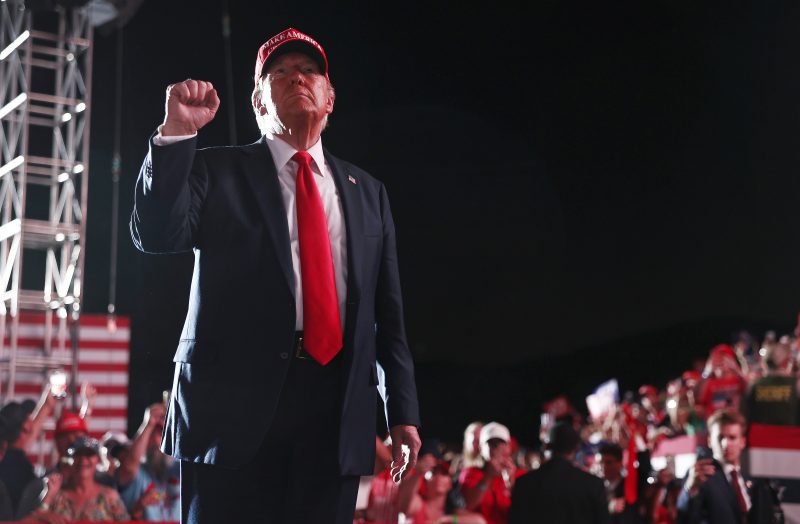In a recent turn of events, former President Donald Trump found himself in the midst of controversy yet again, this time for suggesting violence against a heckler during one of his rallies. The incident occurred following a rally in Alabama, where a protester disrupted his speech by shouting and making gestures before being escorted out by security.
In a characteristic response, Trump expressed his frustration with the interruption and suggested that the heckler should be knocked out. This statement, made in front of a cheering crowd, has ignited a wave of criticism and debate about the role of political leaders in inciting or condoning violence.
Political rallies and public appearances have long been contentious spaces where emotions run high and tensions escalate quickly. It is not uncommon for hecklers or protestors to disrupt speeches and events, seeking to voice their dissent or opposition to the speaker’s message. However, the response to such disruptions varies widely among political figures, with some opting for tolerance and others endorsing more forceful reactions.
Trump’s comments have been condemned by many, who argue that they contribute to a toxic political climate and encourage violence as a means of silencing dissent. In a democracy that values free speech and open debate, the suggestion of physical harm towards a heckler undermines these principles and sets a dangerous precedent for public discourse.
Supporters of Trump, on the other hand, defend his remarks as a justified response to what they perceive as disrespectful behavior. They argue that hecklers have no right to disrupt events and should face consequences for their actions, including the possibility of physical removal.
The incident raises important questions about the responsibilities of political leaders in managing public discourse and promoting civility. While it is natural for individuals to have strong opinions and emotional reactions to differing viewpoints, it is crucial for leaders to model respectful and constructive engagement, even in the face of opposition.
In a time of deep divisions and heightened polarization, the need for leaders who can bridge gaps, foster understanding, and promote unity has never been more critical. Political figures must demonstrate a commitment to upholding democratic values, including the right to free expression, while also fostering an environment where different perspectives can be heard and debated without fear of reprisal.
As the fallout from Trump’s remarks continues to unfold, it serves as a stark reminder of the power and influence wielded by political leaders and the importance of using that influence responsibly. In a society fractured by political tribalism and ideological extremism, finding common ground and treating opponents with dignity and respect are essential to rebuilding trust and fostering a more inclusive and participatory democracy.
